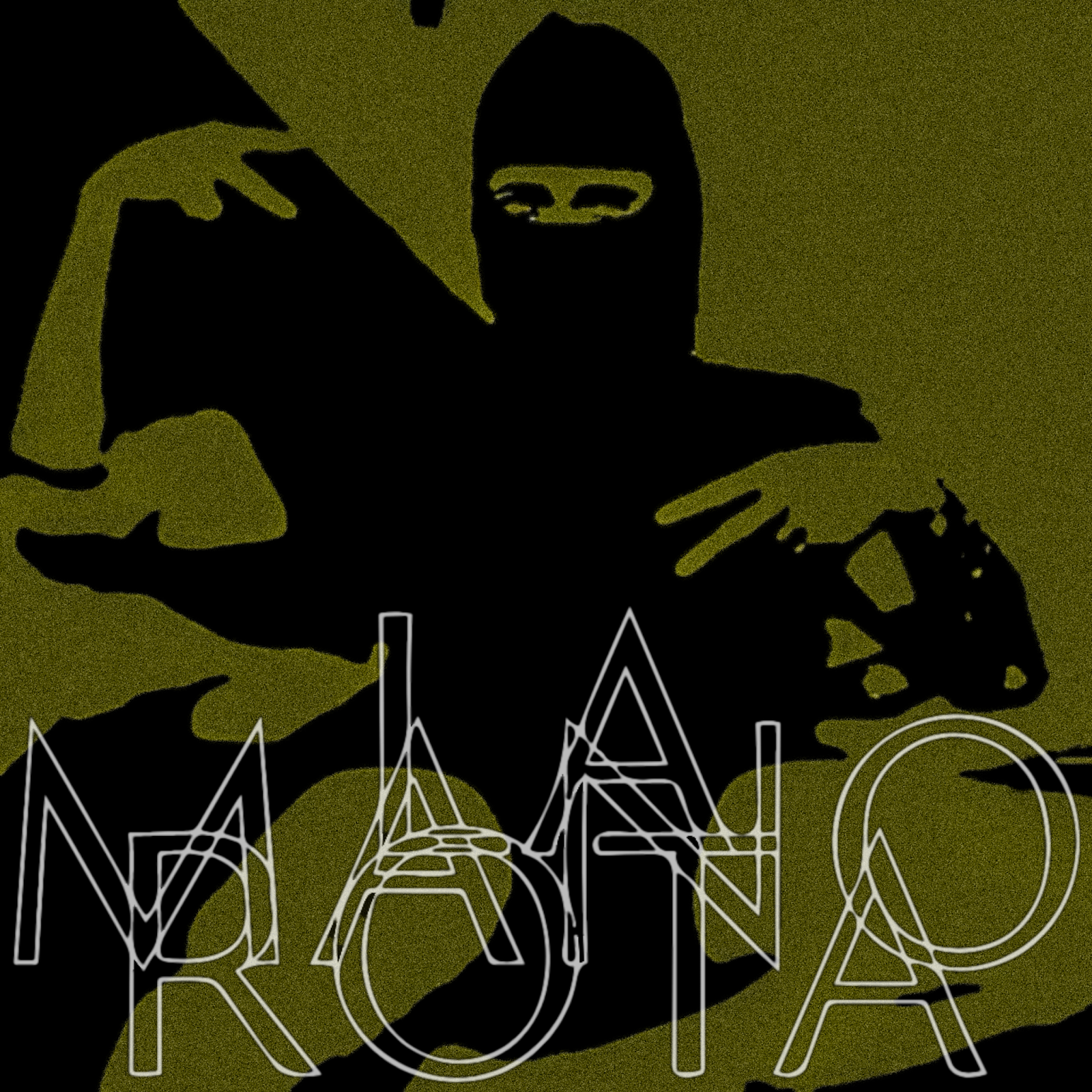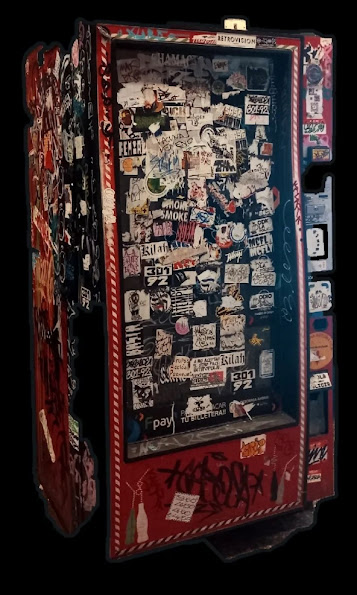Metal, Violence & Cognitive Theory: to enact anger, to perform exile.
MENTAL DEVASTATION
primer caso
The Delusional Mystery of the Self (Part 1)
UNCATEGORIZED AFFECTATIONS
segundo caso
EP. Blackened Free Jazz: Experimentations on structure and harmony boundaries.
About A side. Experimental Blackened Free Jazz: those experimentations on structure and harmony boundaries by myself as la mano rota where nothing more than heavy drugs and long periods of fasting in reclusion. After a last meeting with lifelong friend and lead composer from Mental Devastation, the artist went non-verbal for the most part of a month, with only the video session of his own hungover drumming playing on loop, nothing but pulses could come out of his guitar. The music became literal discourse after "the beautiful turbulent flux that forced me into the never-ending cycle of mourning, battle and isolation which only allowed visceral, hyper-focused violent forms to emerge" had fully muted his subjugated body. "In that, how could I have felt in anything but black?". Only segments of the last line of guitar are recollected by his memory--no one knows about the bassline nor the first line of guitar. No one knows if it were madness or if in madness had to learn to talk. But one truth is undeniable: this blind arrangement of noises flow discordantly and errant until reaching a body, once they touch it, it is theirs--they will move it through the agony, into trance and into war. More exact than words, these dyslexic anti-harmonies will become full upon conquering you.
About B side. Crying via Muted Desperation: Two instances of the very real story of a metaphorical warrior haunted by the vivid screams once cried by his now defeated demonic partner.
The first act stablishes his philosophy thru internal dialogue against his image of the demonic morality.
The second act resolves the internal struggle upon the sight of the real demonic figure. Seeing his eternal partner now castrated, sterile, non-hedonistic, domesticated, incapable of neither laughter nor anger, functional, unproblematic, defeated yet comfortable, uninterested about desire, easy but unfun... Seeing his partner unalive yet not closed in death reunifies the warrior in his most elemental truth: he ought to never again leave his companion left for dead. Body, cognition and spirit, every part of that domesticated creature must be screaming for his sake. To live is to save that demon buried in depth in the leftovers of his demonic friend; to rest is to hug his partner brought to skin; and to fight this war is to learn to love too any time on the wheel that his demon manages to lead, but to never forget that in either cognitive deep forest or at a sensorial megapolis, exiled to decay or assimilated into vanishing, the demon will never subdue, and so shall he.
First and second act are driven by a speedy death metal riff backed by an unrelentless double pedaling cut by a contrapuntal snare hitting four times per bar while letting a mark at every cymbal--perfect ambiance for a proper war metal piece sung in both high and mid-to-low pitches, allowing the storytelling to raise emphasis as needed. Brutal speed and agonic voices, tho, masked by an indistinguishable minor harmonic moving-wall-chords's reverb-cum-delay combo that follows the root note, yet always arrives late or much too early, the piece achieves the exact goal it attempts--by not overdriving the chord-wall, the composer locks the listener inside a frenzy that always felt wrong, but never feels wrong.
The high-tempo rhythm section, decidedly war metal-punk, gallops towards a violent liberation seen as indubitably moral, a must-do for the altruist, the guilty, the egoistic, the old friend and the one in debt. But never patent is the ever-present pulse of the will. A lead guitar gains predominance among the rampage throughout the song, seamlessly moving the death along a river of affections felt in the whole body of the listener, being driven by decided directions of a single string picked thematically at semiquaver yet bending the third string of the guitar into a scream and a melody that bends while going fast, a third voice that develops towards the black currents of metal. The melody gains consciousness, and listener, author, and voices are allowed to partake in its awe.
The third act is a short dream-like state accessed by loss.
Drums and rhythmic guitars stop exact at arrival; bass keeps its line, the reverb-wall is unveiled despite a persistent pathetic distorted out-of-place chord progression trying to match it. Even shifting scales, it knows it has failed. The demonic figure was learning to will balance. Her grief and desires, oblivious to him. The reverbing wall echoed in a tone for which his philosophy lacked feedback. It was only will. All has been volition, and not sound epistemological moral pulse. As the delay-wall fades away, one last distorted chord harmonizes the affective consonance the characters--although separately--have manage to achieve, closing the chaotic journey with a sense of tranquility that enjoys its silence before calling cut on the track.
1
every time
i'm presented with
the opportunity to grieve
i rage
i'm blinded
every time
i'm presented with
the chance to surrender
i remember
your cry from the subterranean chamber
"you left me"
"you left me"
"you left"
"you left"
"you left me"
"you left me"
"for dead"
"you left"
2
passing time
deluded spirit
encaged soul
i'm choked
you're rectified
fallen will
restful gaze
sterilized
where's your anger
where's your lust
come back!
respond!
outgrow!
"you left me"
"you left me"
"i'm gone"
"you're gone"
♡~♤










